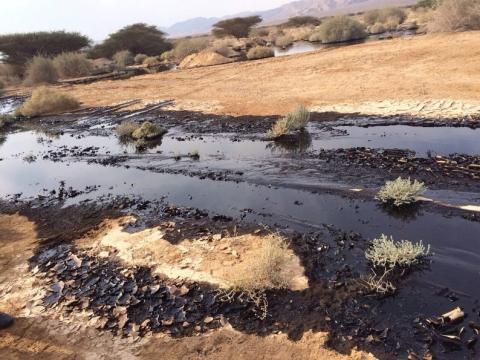How to prevent Israel's next environmental disaster
A modern law would allow more effective supervision of the oil and gas companies, including Eilat Ashkelon Pipeline, at least in everything regarding surveillance of company storage and transport facilities. The state has already proved that in cases where there is danger to the environment it is capable of exercising its authority, as in the ban it handed down against fracking in the Judean plain.
Symbolically, the Arava oil spill occurred on the same day that a convention opened in Tel Aviv dealing with implementing Israel’s national plan for developing oil alternatives for transportation. And indeed, an additional important lesson from the mishap that transpired in the southern Arava, perhaps more important than amending the law, involves the need to accelerate the reduction of dependence on oil, which pollutes the environment — even when there are no spills — due to emissions from chimneys and cars.
A government decision from last year mandated reducing oil-based fuel use by 60 percent by the year 2025. It also mandated that Israel become a center for research and industrial knowledge in technologies in the field of alternatives to oil. The time has arrived to implement this decision and ensure that the oil that will continue to flow during the coming decade be transported in well-protected pipelines, accompanied by an efficient warning system that will make it possible to minimize the damage in the event of a mishap.cos

